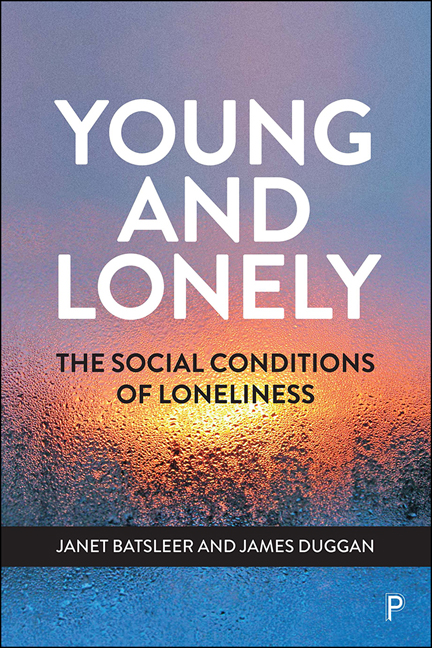Book contents
- Frontmatter
- Contents
- Notes on the Authors
- Acknowledgements
- Preface
- 1 Animate, Attune, Amplify
- 2 Finding Oneself a Loneliness Agenda
- 3 I’M New Here: Creating a New Research Project and A Young Person Led Research Agenda
- Part I The Social Conditions of Loneliness
- Part II The Experience of Loneliness
- Part III Building Friendship and Connection
- References
- Index
6 - The Education System, Aspiration and Loneliness
Published online by Cambridge University Press: 18 March 2021
- Frontmatter
- Contents
- Notes on the Authors
- Acknowledgements
- Preface
- 1 Animate, Attune, Amplify
- 2 Finding Oneself a Loneliness Agenda
- 3 I’M New Here: Creating a New Research Project and A Young Person Led Research Agenda
- Part I The Social Conditions of Loneliness
- Part II The Experience of Loneliness
- Part III Building Friendship and Connection
- References
- Index
Summary
In August every year in England and Wales, the announcement of exam results is a moment of mental health crisis for young people. The normalised pressures which the current education system places on young people throughout their schooling and into their twenties and beyond is the third focus for our discussion of the social conditions of youth loneliness. We are considering the education system as a social condition, as it is the chief institutional framework that shapes the experience of all children and young people. The regular summer coincidence of the reporting of exam results followed by reports of increasing incidence of mental health problems among young people is not actually a coincidence at all, in the sense of a random happening. It is built into the system. This chapter explores a systemic emotional dynamic which is deepening the chances of loneliness among young people and which is reinforced by the belief that ‘success is individual’. A banner in the street displaying this very message and created by fashion students of Manchester Metropolitan University was prominent in the city centre throughout the period of this research.
Discussions in the core research team led us to focus particularly on the impact of aspirational cultures. The theme of aspiration has been widely discussed in educational research and the political rhetoric surrounding the alleged lack of aspiration in pupils of lower socioeconomic status has been subject to scrutiny (Siraj-Blatchford, 2009; Holloway et al, 2011; Allen, 2016). In our study, the ways in which aspiration creates loneliness and isolation came to the fore.
An important recurring finding was that loneliness accompanies both the fear of and the experience of disappointment: of disappointing both oneself and those who have invested their hopes in you, if and when the path of education or career ‘success’ is not sustained. There is extensive research that demonstrates the various ways in which young people are told that they must be resilient, hardworking and competitive and that they must aspire to career and material success. These aspirations impose particular pressures on young people, creating idealised career trajectories that are difficult to live up to. The inevitable disappointment is intrinsic to the hopes of betterment.
- Type
- Chapter
- Information
- Young and LonelyThe Social Conditions of Loneliness, pp. 61 - 70Publisher: Bristol University PressPrint publication year: 2020

